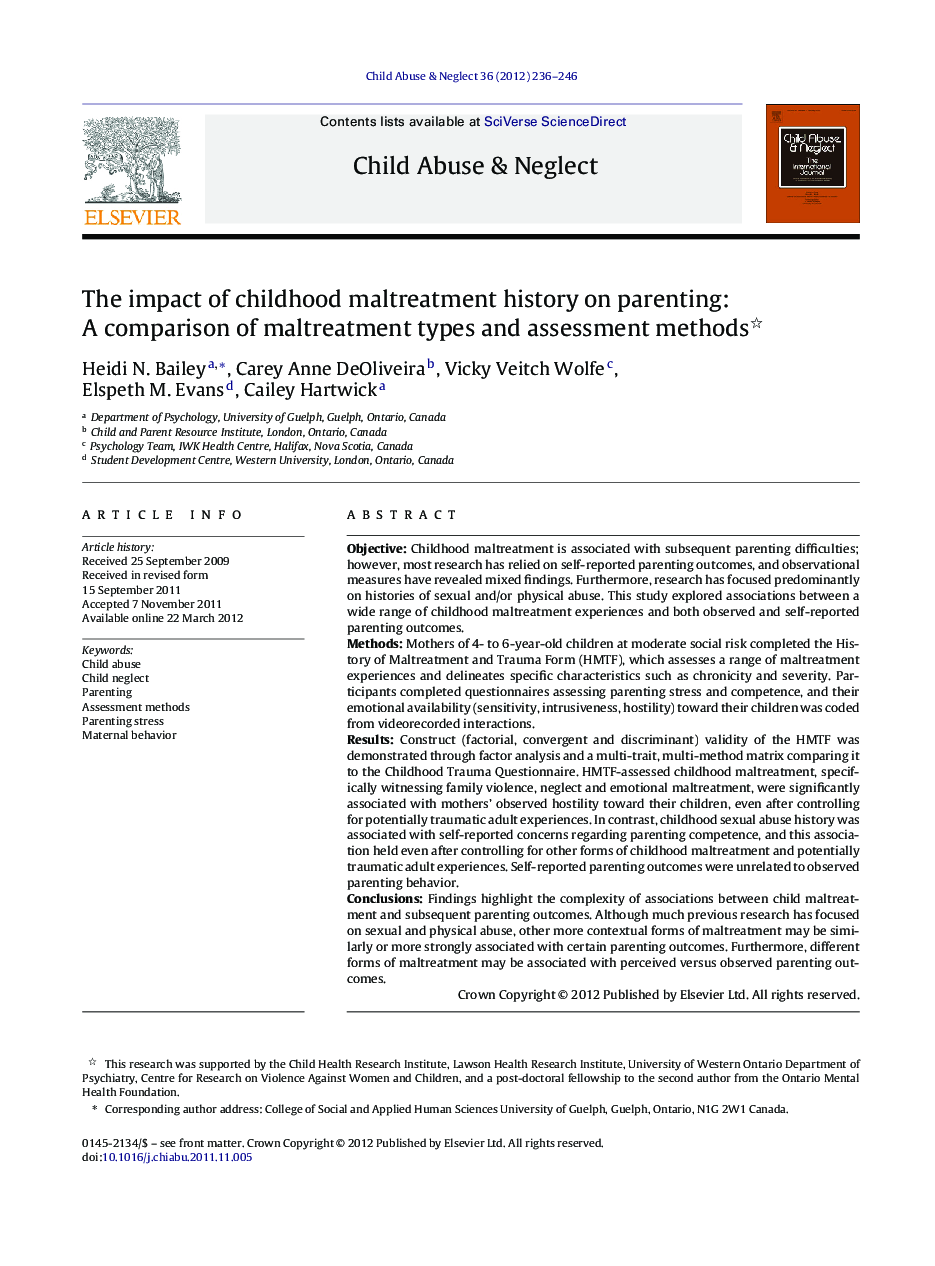| Article ID | Journal | Published Year | Pages | File Type |
|---|---|---|---|---|
| 345072 | Child Abuse & Neglect | 2012 | 11 Pages |
ObjectiveChildhood maltreatment is associated with subsequent parenting difficulties; however, most research has relied on self-reported parenting outcomes, and observational measures have revealed mixed findings. Furthermore, research has focused predominantly on histories of sexual and/or physical abuse. This study explored associations between a wide range of childhood maltreatment experiences and both observed and self-reported parenting outcomes.MethodsMothers of 4- to 6-year-old children at moderate social risk completed the History of Maltreatment and Trauma Form (HMTF), which assesses a range of maltreatment experiences and delineates specific characteristics such as chronicity and severity. Participants completed questionnaires assessing parenting stress and competence, and their emotional availability (sensitivity, intrusiveness, hostility) toward their children was coded from videorecorded interactions.ResultsConstruct (factorial, convergent and discriminant) validity of the HMTF was demonstrated through factor analysis and a multi-trait, multi-method matrix comparing it to the Childhood Trauma Questionnaire. HMTF-assessed childhood maltreatment, specifically witnessing family violence, neglect and emotional maltreatment, were significantly associated with mothers’ observed hostility toward their children, even after controlling for potentially traumatic adult experiences. In contrast, childhood sexual abuse history was associated with self-reported concerns regarding parenting competence, and this association held even after controlling for other forms of childhood maltreatment and potentially traumatic adult experiences. Self-reported parenting outcomes were unrelated to observed parenting behavior.ConclusionsFindings highlight the complexity of associations between child maltreatment and subsequent parenting outcomes. Although much previous research has focused on sexual and physical abuse, other more contextual forms of maltreatment may be similarly or more strongly associated with certain parenting outcomes. Furthermore, different forms of maltreatment may be associated with perceived versus observed parenting outcomes.
